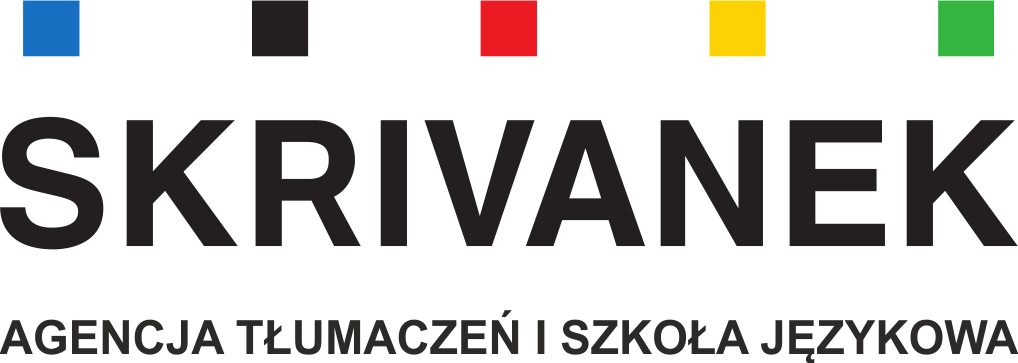0 of 8 Pytania completed
Pytania:
You have already completed the quiz before. Hence you can not start it again.
You must sign in or sign up to start the quiz.
You must first complete the following:
Quiz complete. Results are being recorded.
0 of 8 Pytania answered correctly
Your time:
Czas się skończył
You have reached 0 of 0 point(s), (0 )
Earned Point(s): 0 of 0 , (0 ) 0 Essay(s) Pending (Possible Point(s): 0 )
Current
Review
Rozwiązany
Poprawnie
Niepoprawnie
Pytania 1 of 8
Uzupełnij luki w zdaniach wykorzystując wyrażenia z nawiasów. Pamiętaj żeby wybrać odpowiedni czas teraźniejszy!
1. Mike, why are you wearing a shirt and a tie? (have a job interview)
Because today I BLANK 1 of 6.
2. How do you usually start your day of work?
First I BLANK 2 of 6. (check my mailbox + answer emails).
3. What time does the food shop round the corner operate? (open – 6 a.m., close – midnight)
It BLANK 3 of 6 and BLANK 4 of 6.
4. Does she have a special diet? (not, eat meat)
Yes, she BLANK 5 of 6.
5. Max, the children are driving me crazy! (make mess)
They BLANK 6 of 6 in every single room.
1. Mike, why are you wearing a shirt and a tie? (have a job interview)
Because today I Fill in the blank 1 of 6
2. How do you usually start your day of work?
First I Fill in the blank 2 of 6
3. What time does the food shop round the corner operate? (open – 6 a.m., close – midnight)
It Fill in the blank 3 of 6 Fill in the blank 4 of 6
4. Does she have a special diet? (not, eat meat)
Yes, she Fill in the blank 5 of 6
5. Max, the children are driving me crazy! (make mess)
They Fill in the blank 6 of 6
Pytania 2 of 8
Napisz poprawną formę zdania w języku angielskim:
Na co dzień zajmuję się głównie klientami korporacyjnymi.
On a daily basis I am dealing mostly with corporate clients.
Pytania 3 of 8
Napisz poprawną formę zdania w języku angielskim:
Przestań tak hałasować, nie s łyszę własnych myśli!
Stop making so much noise, I not hear my own thoughts!
Pytania 4 of 8
Napisz poprawną formę zdania w języku angielskim:
Przedstawienie nie rozpoczyna się dzisiaj o 19-tej, tylko jutro.
The performance doesn’t starts today at 19, but tomorrow.
Pytania 5 of 8
Napisz poprawną formę zdania w języku angielskim:
Mój ojciec nigdy nie pije kawy po południu.
My father doesn’t never drink coffee in the afternoon.
Pytania 6 of 8
Napisz poprawną formę zdania w języku angielskim:
Przepraszam, ale podróżuję właśnie pociągiem i tracę sygnał.
I’m sorry but I just travel by train and lose signal.
Pytania 7 of 8
Uzupełnij tekst właściwą f ormą czasownika podanego w nawiasie:
Frank O’Connor (be) BLANK 1 of 10 a very busy businessman who successfully (run) BLANK 2 of 10 his own company. He (not, employ) BLANK 3 of 10 many people but his employees (respect) BLANK 4 of 10 him very much. Usually, Mr O’Connor (work) BLANK 5 of 10 long hours but today he (finish) BLANK 6 of 101]} much earlier, because he (attend) BLANK 7 of 10 a training course in communication. He (not, mind) BLANK 8 of 10 participating in such events at all. He is now in a hurry, since his driver (wait) BLANK 9 of 10 for him outside the building and he (complain) BLANK 10 of 10 that Mr O’Connor is always late for the meetings.
Frank O’Connor (be) Fill in the blank 1 of 10 Fill in the blank 2 of 10 Fill in the blank 3 of 10 Fill in the blank 4 of 10 Fill in the blank 5 of 10 Fill in the blank 6 of 10 Fill in the blank 7 of 10 Fill in the blank 8 of 10 Fill in the blank 9 of 10 Fill in the blank 10 of 10
Pytania 8 of 8
Czasownik podany w nawiasie użyj we właściwym czasie P resent S imple lub P resent C ontinuous :
1. Peter never (talk) BLANK 1 of 13 on the phone while driving.
2. Students frequently (make) BLANK 2 of 13 spelling mistakes in their written assignments.
3. BLANK 3 of 13 you (receive) BLANK 4 of 13 a lot of enquiries about job vacancies at the moment?
4. How many times a day BLANK 5 of 13 Anna (have) BLANK 6 of 13 to take the medicine?
5. You (not, help) BLANK 7 of 13 me at all, so stop dishing out advice.
6. Tom (not, deserve) BLANK 8 of 13 so much criticism from you. You are a layman.
7. We (launch) BLANK 9 of 13 a new line of products next month.
8. Where BLANK 10 of 13 they always (organize) BLANK 11 of 13 staff meetings? In the conference room.
9. This time I (not, fly) BLANK 12 of 13 first class to Paris but the second one.
10. Being frank, Alex (not like) BLANK 13 of 13 eating any vegetables.
1. Peter never (talk) Fill in the blank 1 of 13
2. Students frequently (make) Fill in the blank 2 of 13
3. Fill in the blank 3 of 13 Fill in the blank 4 of 13
4. How many times a day Fill in the blank 5 of 13 Fill in the blank 6 of 13
5. You (not, help) Fill in the blank 7 of 13
6. Tom (not, deserve) Fill in the blank 8 of 13
7. We (launch) Fill in the blank 9 of 13
8. Where Fill in the blank 10 of 13 Fill in the blank 11 of 13
9. This time I (not, fly) Fill in the blank 12 of 13
10. Being frank, Alex (not like) Fill in the blank 13 of 13
